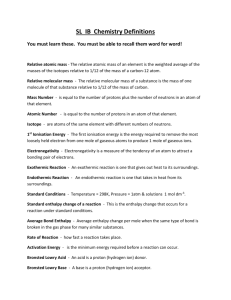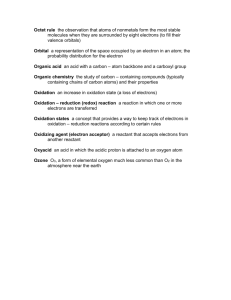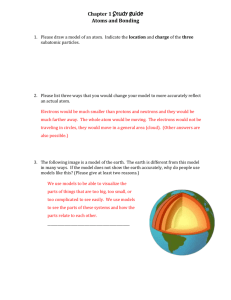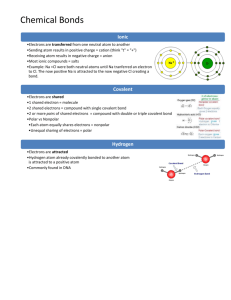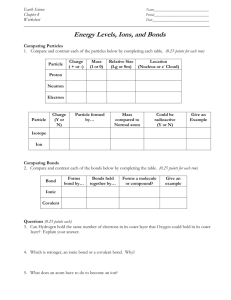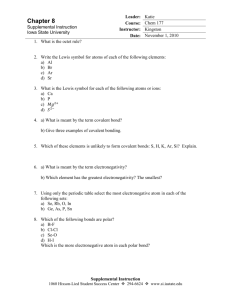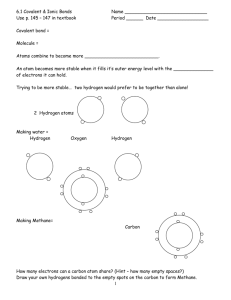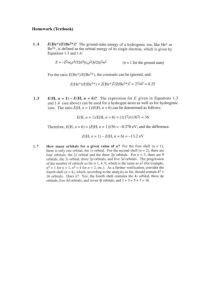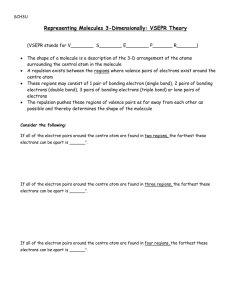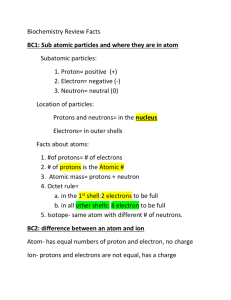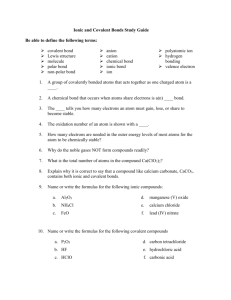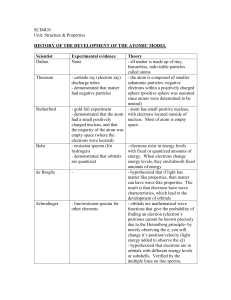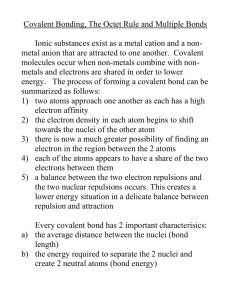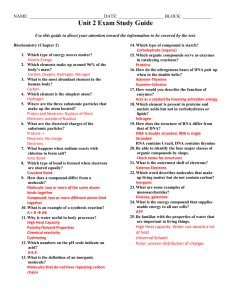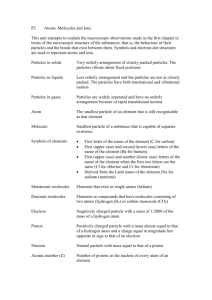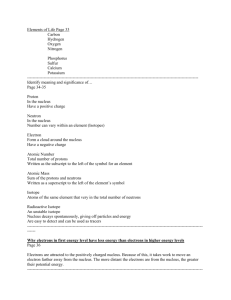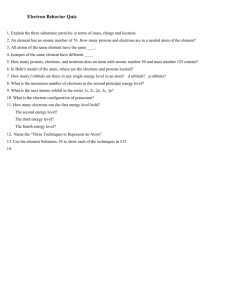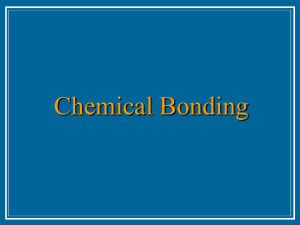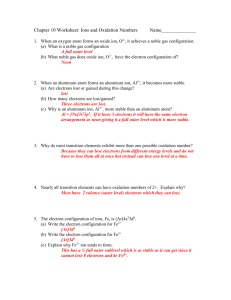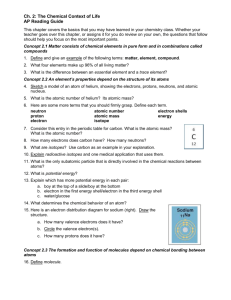GLOSSARY OF USEFUL TERMS FOR UNIT 2 - A
advertisement
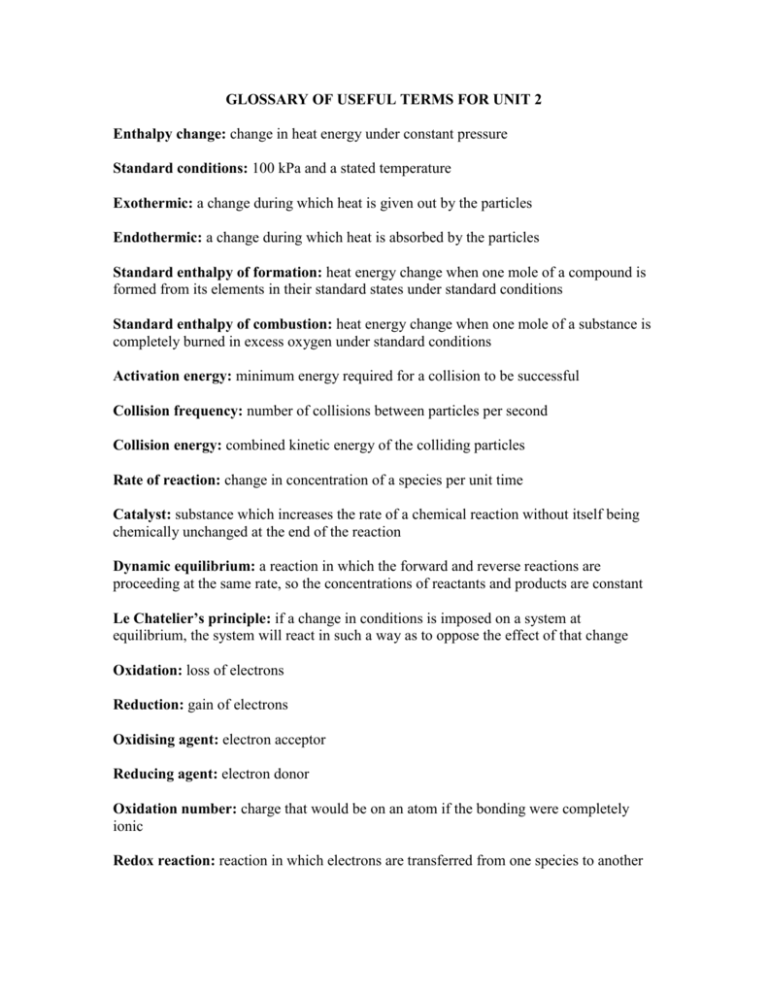
GLOSSARY OF USEFUL TERMS FOR UNIT 2 Enthalpy change: change in heat energy under constant pressure Standard conditions: 100 kPa and a stated temperature Exothermic: a change during which heat is given out by the particles Endothermic: a change during which heat is absorbed by the particles Standard enthalpy of formation: heat energy change when one mole of a compound is formed from its elements in their standard states under standard conditions Standard enthalpy of combustion: heat energy change when one mole of a substance is completely burned in excess oxygen under standard conditions Activation energy: minimum energy required for a collision to be successful Collision frequency: number of collisions between particles per second Collision energy: combined kinetic energy of the colliding particles Rate of reaction: change in concentration of a species per unit time Catalyst: substance which increases the rate of a chemical reaction without itself being chemically unchanged at the end of the reaction Dynamic equilibrium: a reaction in which the forward and reverse reactions are proceeding at the same rate, so the concentrations of reactants and products are constant Le Chatelier’s principle: if a change in conditions is imposed on a system at equilibrium, the system will react in such a way as to oppose the effect of that change Oxidation: loss of electrons Reduction: gain of electrons Oxidising agent: electron acceptor Reducing agent: electron donor Oxidation number: charge that would be on an atom if the bonding were completely ionic Redox reaction: reaction in which electrons are transferred from one species to another Geometrical Isomerism: the same molecular formula, but a different spatial arrangement of atoms around a double bond Addition: Combination of two or more molecules to form a single molecule Substitution: Replacement of one atom or group of atoms by another Elimination: Loss of a small molecule from a larger molecule to form an unsaturated compound Electrophile: Species which can accept an electron pair from another species Nucleophile: Species which can use a lone pair of electrons to form a covalent bond Free Radical: Species with an unpaired electron Homolytic Fission: Breaking of a covalent bond in such a way that one electron goes to each atom Heterolytic Fission: Breaking of a covalent bond in such a way that both electrons go to the same atom Hydration: Addition of water to a species Hydrolysis: Use of water to break covalent bonds Oxidation: Addition of oxygen or removal of hydrogen Addition Polymerisation: Combination of a large number of monomers to form a single chain Biofuel: A fuel derived or produced from renewable biological sources
